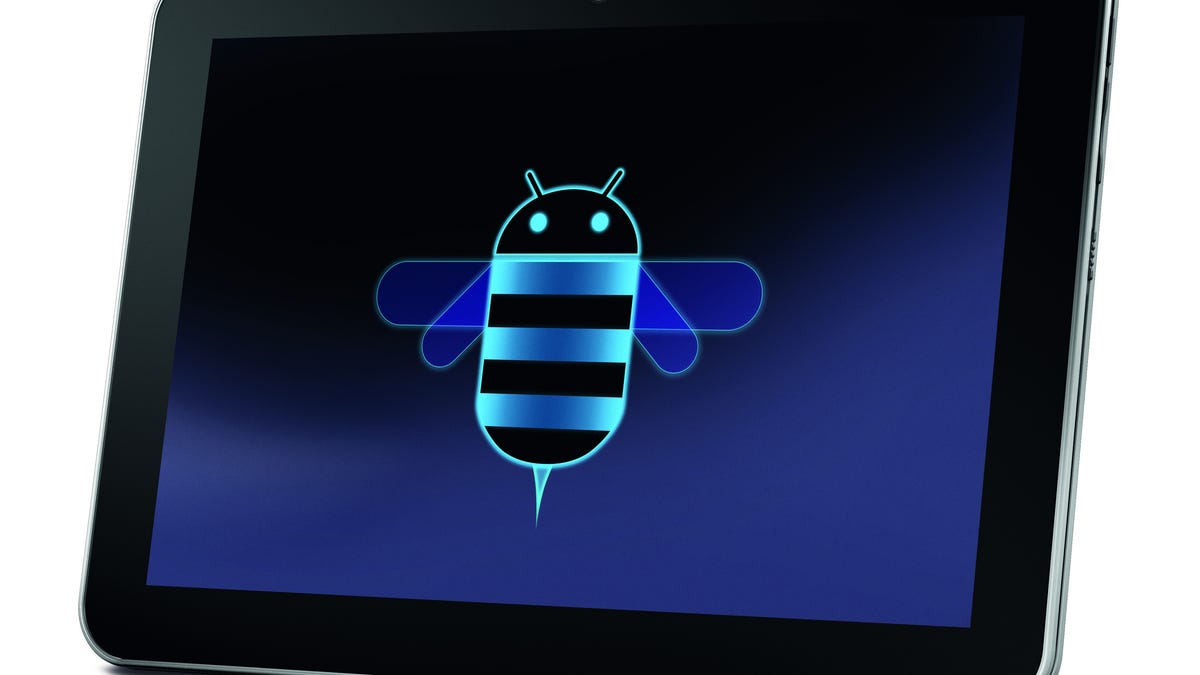Toshiba tries anew with 10.1-inch Android tablet
Toshiba says the Honeycomb-based AT200 is thinner and lighter than comparably sized tablets--which is part of the pitch to help it get a foothold in the market in the fourth quarter.

BERLIN--Toshiba, trying again to gain a foothold in the tablet market, introduced the AT200 Android tablet today, a Honeycomb-powered model with a 10.1-inch screen.
The tablet, like Samsung's Galaxy Tab 10.1, has a screen resolution of 1280x800. It's 7.7mm thick and the Wi-Fi-only model weighs 558 grams--measurements Toshiba is very excited about as a sales pitch.
"People like thin and light," said Steve Crawley, Toshiba's senior manager for tablet product development, at the IFA electronics show here. Toshiba boasts that's the thinnest and lightest for a tablet in its screen size.
The tablet has a dual-core TI OMAP 4430 processor running at 1.2GHz; an LED-backlit LCD display; a battery good for eight hours of video; ports for MicroSD cards, HDMI video, and USB; a gyroscope, accelerometer, and electronic compass; a 5-megapixel rear-facing camera with LED flash and 2-megapixel front-facing camera; stereo speakers; 1GB of memory; 256mm by 176mm by 7.7mm dimensions; and Wi-Fi supporting 802.11b/g/n. It's got Adobe Systems' Flash Player 10.3, convenient for the BBC iPlayer crowd, and Toshiba's media player software.
It'll ship in the fourth quarter, Crawley said. The company didn't release pricing information, but Crawley said it would be "competitive." The tablet will arrive with version 3.2 of Google's tablet operating system, aka Honeycomb, but Toshiba is committed to an over-the-air update to its successor, Ice Cream Sandwich, he added.
The Android tablet market is a tough one, though. Strong players such as Samsung haven't made much headway against Apple's iPad dominance, and it's tough for Android device makers to stand out from the crowd.
"If you're all going Android some people will have their work cut out to distinguish the product," Crawley said. Toshiba believes it can with the AT200, its third-generation tablet. In addition to the thin-and-light argument, the company will emphasize sound features, such as the ability to adjust sound according to best fit the conditions where the tablet is located, and video features, such as Resolution+ upscaling technology to improve low-resolution video.
To be a success, Android tablet makers need to not only match iPad abilities but exceed them, said Current Analysis analyst Avi Greengart:
To reach parity, they need content and apps. The content, even with Google video and things like Samsung Hub, is fragmented and weak. And there just aren't that many apps. That's what makes the iPad so incredibly versatile.
If Android improves the content story and the app story, all that means is you've reached some parity with the market leader. Consumers faced with that situation will rightly ask, 'Why shouldn't I get an iPad?' So there has to be something the Android tablet vendors offer that the iPad doesn't.
Crawley believes that Android tablet software is "getting better all the time," though. "We are very happy with the market and how it's developing."
Toshiba also thinks it's in a better position now than it was during earlier tablet attempts such as the AT100. Asked what the company learned from those, Crawley replied, "What didn't we learn? To be first on the market was a very difficult trick. We learned how to talk to Google better, to tailor our product more."

